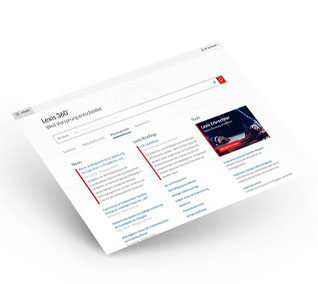In this paper, we analyze the impact of analyst recommendations on stock prices of firms listed in the Austrian and German stock markets. This empirical study comprises 49,928 recommendations from various analyst houses between 2004 and 2014. We use an event study framework with a market model as the underlying return generating process. Instead of using the pure recommendations as the event, we take the previous recommendation into account and therefore are able to provide more insights to the nature of abnormal returns. In general we can support the efficient market hypothesis that new information is incorporated in the stock price immediately. For the smaller Austrian market though, we find that some event types cause an overreaction while others take two days to incorporate, compared to the seemingly more efficient German market. Besides abnormal returns, abnormal trading volume also suggests that there is an information leak in both markets, which might be attributed to preferred customers. Furthermore, we are able to show that smaller firms experience higher abnormal returns. As firms listed on the Austrian stock market overall have a lower market capitalization, price reactions for both upgrades and downgrades are significantly stronger compared to Germany.

